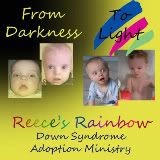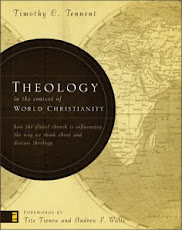Our Greatest Need
According to Thabiti Anyabwile:
The greatest need in the world today is the gospel. It is the greatest need of the world because men, women, and children are perishing without a vital knowledge of God through the good news of our Savior and his Son, Jesus. [I would also add, that the gospel is our greatest need because it is the solution to our greatest problem: sin]The greatest need in the church today is the gospel. The gospel is not only news for a perishing world, it is the message that forms, sustains, and animates the church. Apart from the gospel, the church has nothing to say - that is, nothing to say that cannot be said by some other human agency. The gospel distinguishes the church from the world, defines her message and mission in the world, and steels her people against the fiery darts of the evil one and the false allurements of sin. The gospel is absolutely vital to a vibrant, joyous, persevering, hopeful, and healthy Christian and Christian church. So essential is the gospel to the Christian life that we need to be saturated in it in order to be healthy church members.The gospel of Jesus Christ is literally "good news." As news it contains statements of fact and truths derived from those facts. As good news the gospel holds out hope based upon promises of God and grounded in the historical facts and truths that vindicate those promises.The gospel or good news of Jesus Christ is that God the Father, who is holy and righteous in all his ways, is angry with sinners and will punish sin. Man, who disobeys the rule of God, is alienated from the love of God and is in danger of an eternal and agonizing condemnation at the hands of God. But God, who is also rich in mercy, because of his great love, sent his eternal Son born by the Virgin Mary, to die as a ransom and a substitute for the sins of rebellious people. And now, through the perfect obedience of the Son of God and his willing death on the cross as payment for our sins, all who repent and believe in Jesus Christ, following him as Savior and Lord, will be saved from the wrath of God to come, be declared just in his sight, have eternal life, and receive the Spirit of God as a foretaste of the glories of heaven with God himself.We must cultivate and protect a ravenous desire for this message. Regularly hearing and plumbing the depths of the gospel increases our knowledge of the message, our affection for the Savior, and our skill in sharing the message.As church members, our aim is to understand the gospel so deeply, so intimately, that it animates every area of our lives. We want the gospel central to our communication with others, central to how we encourage and correct, central to individual career and relationship decisions, central to the decisions the church makes corporately, and central to all our habits of life. We want the gospel, the God of the gospel, to take priority in every area of life.























